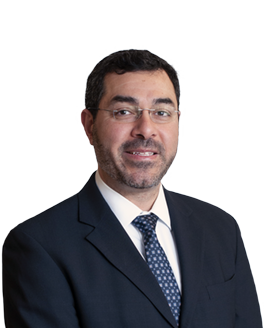-
Featured
Elevated BMI Is a Risk Factor for Failure to Achieve Minimal Clinically Important Difference After TKA
Researchers from the Center for Hip & Knee Replacement found that higher BMI increases the risk that a patient undergoing total knee arthroplasty will not notice meaningful improvement. The risk is particularly high for high-functioning patients who have relatively low preoperative pain.
-
AI Accurately Identifies Both Primary and Revision Arthroplasty Implants From Plain Radiographs
Young-Min Kwon, MD, PhD, and colleagues in the Bioengineering Laboratory developed and validated a convolutional neural network that is 96% accurate or more when identifying arthroplasty implants from plain radiographs, whether primary or revision and whether implanted in the hip or knee.
-
Shared Decision-Making Tied to Better Outcomes in Patients With Knee Osteoarthritis
When Massachusetts General Hospital researchers provided a decision aid to all patients with hip or knee osteoarthritis before they consulted a surgeon, 68% met criteria for well-informed, patient-centered (IPC) decisions about treatment, and patients with knee osteoarthritis who made IPC decisions had better outcomes.
-
HIV Positive Patients at Higher Risk of VTE After TJA
Jeffrey J. Olson, MD, and Hany S. Bedair, MD, of the Department of Orthopaedic Surgery, and colleagues found that the odds of venous thromboembolism after total hip or knee replacement were 11 times higher in HIV-positive patients than in matched HIV-negative controls.
-
No Factor Predicts Need for Ultracongruent Insert During TKA
Hany S. Bedair, MD, Christopher M. Melnic, MD, and Akhil Katakam, MBA, of the Department of Orthopaedics, and colleagues found no difference in pre- or postoperative measures between patients who underwent total knee arthroplasty using a cruciate-retaining component and those who received an ultracongruent component.
-
Osteoarthritis of Knee or Hip Increases Risk of Venous Thromboembolism
The first study of its kind shows that patients with knee or hip osteoarthritis are at high risk of developing venous thromboembolism, even if they don't undergo joint arthroplasty.
Joint Replacement Contributors
-

Christopher M. Melnic, MD
Director, Adult Reconstruction Fellowship Program, Massachusetts General Hospital, Assistant Professor of Orthopedic Surgery, Harvard Medical School
Recent Article
Clinical Outcomes Are Comparable With Robotic and Manual Total Hip Arthroplasty
-

Christopher W. DiGiovanni, MD
Chief, Foot & Ankle Service and Vice-Chair for Academic Affairs, Team Physician, Boston College Athletics; Consultant Team Physician, U.S. Ski Team, Professor of Orthopaedic Surgery, Harvard Medical School
Recent Article
Two Mass General Research Groups Share Resources, Lab Space and a Vision for the Future
-

Ebru Oral, PhD
Associate Director, Biomaterials, Harris Orthopaedics Lab, Associate Professor of Orthopedic Surgery, Harvard Medical School
Recent Article
A Next-Generation Approach for Managing Periprosthetic Joint Infection in Total Joint Arthroplasty
-

Hany S. Bedair, MD
Chief, Center for Hip & Knee Replacement, Department of Orthopaedic Surgery, Massachusetts General Hospital, Director, MGH/NWH Kaplan Joint Center at NWH, Associate Professor of Orthopaedic Surgery, Harvard Medical School
Recent Article
Clinical Outcomes Are Comparable With Robotic and Manual Total Hip Arthroplasty
-

Orhun K. Muratoglu, PhD
Director, Harris Orthopaedics Laboratory , Director, Technology Implementation Research Center (TIRC), Professor of Orthopedic Surgery, Harvard Medical School
Recent Article
A Next-Generation Approach for Managing Periprosthetic Joint Infection in Total Joint Arthroplasty
-

Young-Min Kwon, MD, PhD
Vice Chair for Clinical Research, Department of Orthopaedic Surgery, Program Director, Adult Reconstructive Surgery Fellowship, Massachusetts General Hospital, Professor of Orthopaedic Surgery, Harvard Medical School
Recent Article
Machine Learning Models Identify Patients at High Risk of Prolonged Hospital Stay After Primary THA